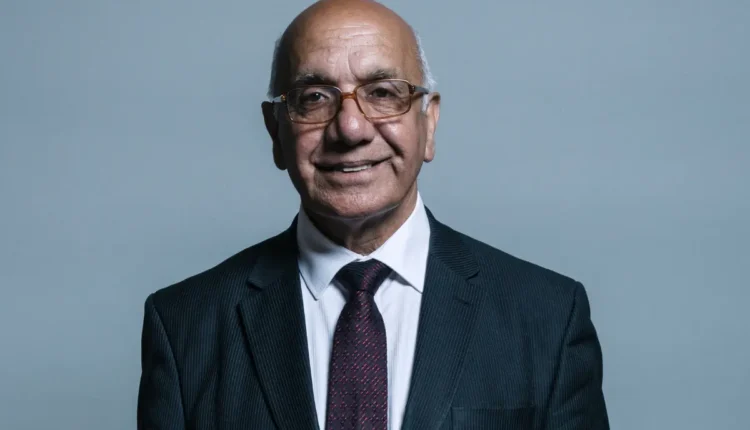In the realm of British politics, few individuals have exhibited the dedication, resilience, and unwavering commitment to public service as Virendra Kumar Sharma. Born on April 5, 1947, in Mandhali, Nawanshahr, within the Punjab Province of British India, Sharma’s life story is a testament to the transformative power of perseverance and service.
Early Life and Career of Virendra Kumar Sharma
Virendra Sharma’s beginnings were humble, rooted in a Punjabi Hindu Brahmin family. His early years in India instilled in him values of hard work and community service, which would later shape his political career.
In 1968, Sharma arrived in Hanwell, Ealing, London, with dreams of a brighter future. He began his career as a bus conductor on the 207 route, a job that introduced him to the diverse tapestry of London’s populace. His early experiences working as a day services manager for people with learning disabilities in Hillingdon showcased his commitment to helping those in need.
Political Ascent
Sharma’s political journey commenced with his involvement in the Liberal Party, but his alignment with the Labour Party soon became evident. His role as the Race Equalities Officer highlighted his dedication to social justice and equality. Sharma’s entry into local politics began in 1982 when he was elected as a councillor in the London Borough of Ealing.
Virendra Kumar Sharma’s tenure, which lasted until 2010, saw him serve as Mayor, despite facing criticism for low attendance. His decision to stand down as a councillor in the 2010 local elections marked the end of an era but paved the way for greater responsibilities.
Parliamentary Career
The year 2007 marked a significant turning point in Sharma’s career when he was elected as the Member of Parliament (MP) for Ealing Southall. His victory, with 41.5% of the vote and a majority of 5,070, was a testament to his popularity and the trust reposed in him by the constituents.
Virendra Kumar Sharma’s parliamentary career was characterized by his advocacy for various causes, from opposing the Labour government’s Heathrow Airport expansion plans to supporting David Miliband in the 2010 Labour leadership election.
Sharma’s re-election in 2010, 2015, 2017, and 2019 underscored his enduring appeal. His stance on significant issues, such as voting against the bill on triggering Article 50 due to concerns over Brexit’s economic impact, showcased his commitment to his principles. Despite facing a vote of no-confidence from his Constituency Labour Party in 2019, Sharma’s resilience saw him through, albeit with a decreased majority.
Advocacy and Legacy
Throughout his career, Virendra Kumar Sharma was a vocal advocate for various causes. His membership in Labour Friends of Israel and vice-chairmanship of the All-Party Parliamentary Group for British-Hindus reflected his dedication to fostering understanding and cooperation among diverse communities. His fluency in Hindi and Punjabi enabled him to connect with his constituents on a deeper level, bridging cultural gaps.
Personal Life
Virendra Sharma’s personal life has been a source of strength and support throughout his career. Married to Nirmala Sharma since 1968, the couple has a son, a daughter, and three grandchildren. His personal experiences and cultural heritage have played a significant role in shaping his worldview and political stance.
Recognition and Retirement
In 2023, in recognition of his lifelong contributions, Virendra Kumar Sharma was honored as a living legend at the India UK Achievers Honours, celebrating 75 years of India’s independence. This accolade was a fitting tribute to a man whose life has been dedicated to public service and bridging the gap between cultures.
On May 27, 2024, Virendra Kumar Sharma announced his retirement from active politics, marking the end of a remarkable journey. His legacy, however, continues to inspire and motivate future generations to pursue public service with integrity and dedication.
Also Read:Marsha Singh: Defender of Immigrant and Asylum Seeker Rights

